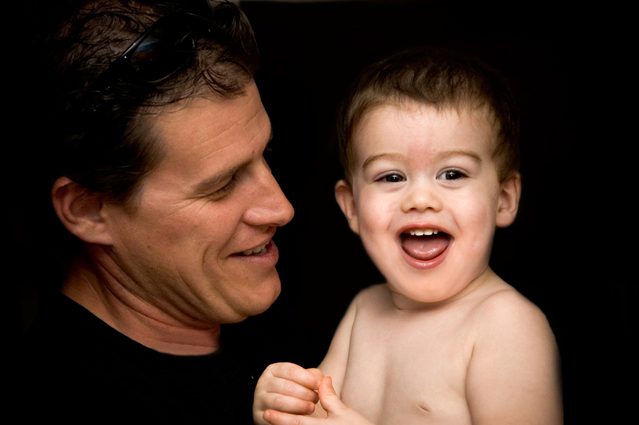Talking with your children about sexual health is essential to their safety and well-being. Plus, if you don’t do it, the internet will!
However, even the most sex positive of parents struggle with knowing how much to talk about, and when.
We’re going to cover some ideas for approaching sex ed, starting with babies. Yes, that’s right—babies!
Start with babies
Sex ed starts the moment we’re born! Many adults use cute terms like pee-pee to avoid saying penis and vulva to these tiny creatures. However, children deserve to know the correct language for their genitals. It helps them talk properly with their health care providers, and may even protect them from exploitation by predators.
Remain positive
When littles touch their genitals (usually at the worst possible time, such as when you have guests at the dinner table, at the grocery store, or in church), take a deep breath. It’s natural for babies and toddlers to be enjoy touching themselves (and even enjoy it). Remind them that although it’s natural, it’s an activity done in a private place by themselves.
Don’t panic
If you find your child naked with another child of the same age, remember that it’s developmentally normal. However, this is a great moment to remind children it’s not socially acceptable for children to touch each other or have another person touch them except in rare cases when a doctor might examine them.
It’s not just one epic conversation
Sex ed should be many little talks that give children information over time. If your four-year-old asks how babies are born, you probably don’t need to cover menopause. Start simple, then encourage your child to ask more questions as they arise.
Don’t wait for questions
Tell your child you’re open to talking about anything, including sexual health. They may be too shy or afraid to start a conversation. Be the adult and break the ice for them.
Don’t start late
Kids encounter information early thanks to the internet and other media. If you wait too long, others will educate your children instead of you. Research what is age appropriate and use your child’s curiosity as a guide.
Find a safe space to talk
Tuck in may be a great time for questions. You can also make conversations less awkward by having them while doing other activities like driving or baking.
Be honest
If a question or topic makes you feel uncomfortable, let them know. If your Grade 3 son comes home asking what a blow job is, let him know that you find it difficult to answer the question because in your day, these things weren’t talked about easily. Remind him that you want him to know the facts, though, so will answer any questions he asks.
Do your research
If your child slams you with a tough question, tell them you’ll get back to them, then look it up. No one expects you to answer complex questions on the spot. If you feel they are old enough, look up the answers together. We have great links on our website.
Kids want to hear from their parents
Studies show that children want sex ed from their parents. Plus, this offers you a great opportunity to share your values with your children. Be the safe and trusted source for such valuable information!
Get resources
Check out authors like Meg Hickling and Cory Silverberg. When you read a book with your child, you’re not only sharing quality time and a love of reading, you’re taking the pressure off to know all the right words and topics. Win.
You can do this, I promise. Start small, be positive, and find the resources you need to make it happen. Your children want and deserve support in this crucial area. Stay safe (and keep them safe).
